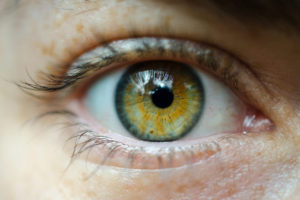In 1992, Center Founder Richard Davidson, one of the world’s leading neuroscientists, met the Dalai Lama who encouraged him to apply the same rigorous methods he used to study depression and anxiety to the study of compassion and kindness.
Davidson, who was named one of Time Magazine’s "100 Most Influential People" in 2006, did just that, and the results of his studies at the Center for Healthy Minds are portrayed in the fascinating new documentary, Free the Mind.
The Madison premiere of coincides with the 2013 edition of “Change Your Mind Change the World,” which will be headlined by a visit by the Dalai Lama (on May 15, 2013) and a series of panel discussions with thought leaders from a variety of fields, including neuroscience, economics and sustainability, moderated by Arianna Huffington and Daniel Goleman. Davidson is also one of the panelists confirmed to attend the event.
The film, which premiered at the prestigious International Documentary Film Festival of Amsterdam, poses two fundamental questions: What really is consciousness and how does it manifest in the brain and body? And is it possible to physically change the brain solely through mental practices?
By studying Buddhist monks and other long-term meditators, Davidson found that it is actually possible to rewire the brain through meditation and other mental skills training techniques, and he has dedicated himself to applying this discovery to improve the lives of people throughout the world.
The facts are stark. More American soldiers have committed suicide after returning home from Iraq and Afghanistan than were killed in the combat itself. A recent report from the Department of Veterans Affairs put this figure at 22 soldiers and veterans committing suicide every day. Many suffered from post-traumatic stress disorder (PTSD). Likewise, the number of American children diagnosed with attention deficit hyperactivity disorder (ADHD) and treated with pharmaceuticals such as Ritalin has skyrocketed in recent years.
Davidson’s recent work involves young children in school settings and American war veterans as part of a scientific exploration of whether mindfulness-based techniques, such as meditation and yoga, can ease their pain, relax their nervous systems, improve their attention and help them become happier and more peaceful.
In her own very personal quest to understand the inner workings of the mind and brain, Danish film director Phie Ambo spent a year at CHM in Madison, WI with Davidson as he conducted some unusual experiments. The surprising results can be found in Free the Mind.






